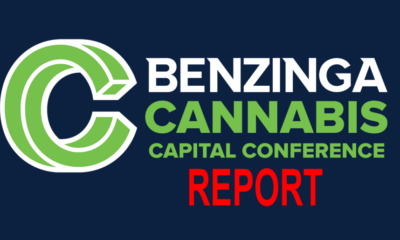IN THE CANNABIS industry, we’ve seen some big-time merger and acquisition (M&A) activity that will most likely continue over the course of this year and beyond. In the U.S., for example, big multi-state operators (MSOs) have been gobbling up smaller operators to expand their footprint across more territories.
As the industry continues evolving, we’ll see more of this kind of M&A activity—leaving us wondering, is consolidation good for the cannabis industry?
Some of the biggest merger deals in cannabis to date have been Trulieve and Harvest, Verano and AltMed, and Curaleaf and Grassroots. And this past March, Cresco and Columbia Care announced their merger, solidifying Cresco as the world’s largest cannabis company in revenue and the largest in the United States across key operating metrics.
Advertisement
It’s important to note that we’re not here to discuss the merits and challenges of corporate cannabis. We’re simply looking at a fact-based assessment of the industry-wide impact of multiple cannabis companies with 10,000-plus employees. In this article, we’ll answer a couple key questions:
- What does this mean for the people currently employed in cannabis?
- What does this mean for the cannabis industry as a job-creation engine?
Bigger Org Charts, Bigger Roles
As cannabis companies become bigger than they’ve ever been, the industry will have more roles, jobs and functions for people to take on than ever before. These include:
- Administrative roles. There are going to be a bigger variety of roles centralized to support 10,000-employee businesses. Back-office and administrative positions will greatly expand.
- Shared services. There will be new roles for shared services on the production and revenue side of the industry—roles that drive standard operating procedures (SOPs) across a network of stores or facilities. Shared services roles may include overlapping disciplines from retail, retail marketing, manufacturing, cultivation and processing.
- More executive roles. The executive suite and leadership ranks will continue to add new jobs and functions based on added scope. Some of these roles will have never existed before in legal cannabis and be borrowed from or patterned after other industries. Some new C-suite and VP-level roles may be unique to cannabis. This will provide a lot of opportunities for upward, internal mobility in cannabis.
- More middle management roles. A vertically integrated cannabis org chart already has a wide variety of job types. Management roles related to agriculture, production, consumer packaged goods (CPGs), retail and administration positions may all exist within a single, vertically integrated cannabis company. As cannabis enterprises grow in size, more specialized jobs will be carved out within those existing lanes.
Some of the areas where new cannabis roles will emerge are in supply chain planning and forecasting, human resources and specialized corporate positions. These jobs will require managers and executives to work across a network of sites or facilities within a single state or across multiple states. There will be more key functional hires who can manage and lead across departments within a vertically integrated company.
Within this burgeoning industry, there’s a need for continuous improvement of intelligent organizational design. Big companies like Cresco, Curaleaf and Trulieve will need an effective organizational strategy and people with specific, functional subject matter expertise. These needs will lead the innovation in defining the many different types of jobs that will exist based on the specific scope of the companies.
Advertisement
High Turnover, Rapid Change
We’ll have to be flexible and nimble in this era of cannabis consolidation.
As companies grow larger through M&A, there will be an inevitable increase in turnover. Merging companies tend to lay folks off. Some employees at big, newly consolidated enterprises may leave on their own volition, preferring to work for a smaller company that’s more fast-paced and startup-like.
The job market for innovative talent will be high. There should be a flow of talent between the big guys and the smaller outfits, as people choose work environments that suit them best.
Just because the big players are getting bigger, it doesn’t mean smaller companies need to lose employees. As some folks leave larger, more corporate cannabis companies to work at startups, there’s an opportunity for these smaller companies to become more sophisticated more quickly.
Early growth-stage cannabis companies will have the opportunity to bring in top talent leaving or being laid off from the big guys, which is an opportunity that they haven’t really had before. We anticipate an acceleration in how quickly smaller companies can operationalize their assets, get facilities up and running, and begin down a path to profitability.
Talent from the Outside
As cannabis companies grow larger, they will attract more executive talent from outside the industry—people who may have never considered cannabis as an option before. Leaders who may have avoided the industry due to its startup nature and legal status may consider cannabis as companies become more corporate.
To answer this column’s initial question—at FlowerHire, we do think consolidation is good for the cannabis industry. Consolidation means the industry is growing and evolving. These bigger companies will still need massive workforces.
What we’re currently witnessing in cannabis is more licenses, more retail locations and more facilities continuing to open. Even with massive consolidation, cannabis should still be a leading job creator across the country. Cannabis will continue to present economic opportunities and restore middle-class jobs in rural America.

















